Summer at the French Institute of Pondicherry

Summer at the French Institute of Pondicherry
This summer, I had the opportunity to intern at the French Institute of Pondicherry in India. Having grown up hearing about Pondicherry in various contexts, it felt incredibly fortuitous that my first visit took me right to the city's heart: Rock Beach and White Town. White Town, where the French Institute (Institut Français de Pondichéry, or IFP) is located, is a quaint and pleasant neighborhood with wide streets, charming old buildings, and a lovely beach walk. The institute itself offers a beautiful view of the Bay of Bengal from its guesthouse balcony.

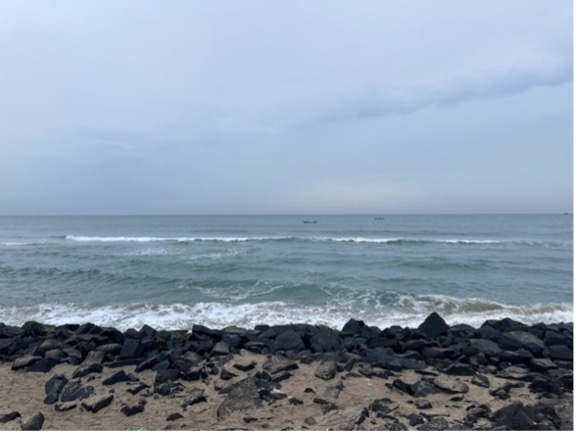
IFP is a research institute with ongoing projects in Indology, sociology, ecology, and geomatics. The institute also houses an extensive archive of manuscripts, photographs, and plant and pollen specimens. Recently, the institute launched a digital version of its archive, providing free online access to many items in its vast collection.
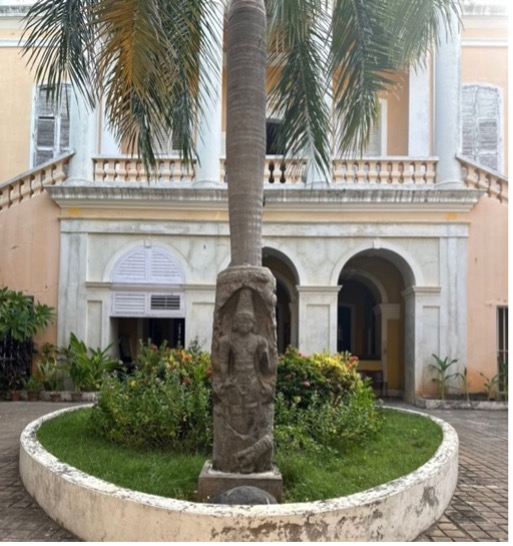
During my internship, I worked with the Indology department, helping them update their manuscript collection by creating new labels for manuscripts. I also learned how to read Grantha, the script in which several texts in the institute's archive are written. Although Grantha follows the logic of other syllable-based Indic scripts, making it relatively easy to learn in modern print, seeing it for the first time in a manuscript made me realize firsthand the challenges one encounters when reading texts from a different period with different styles and conventions.
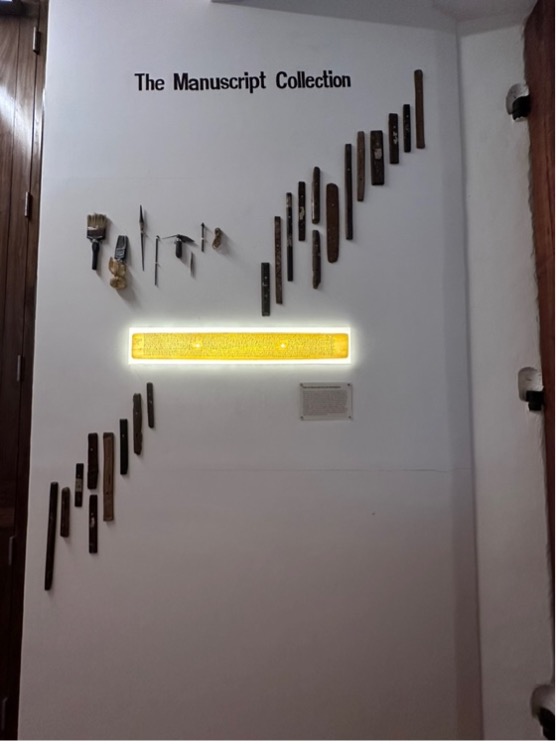
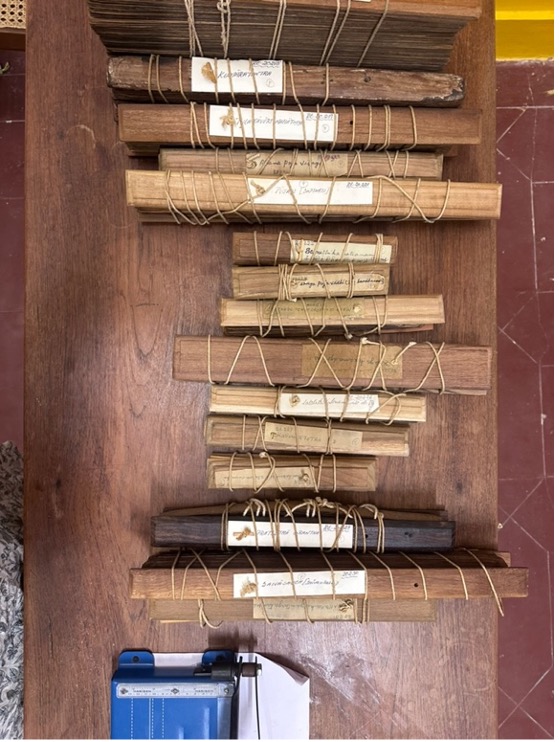
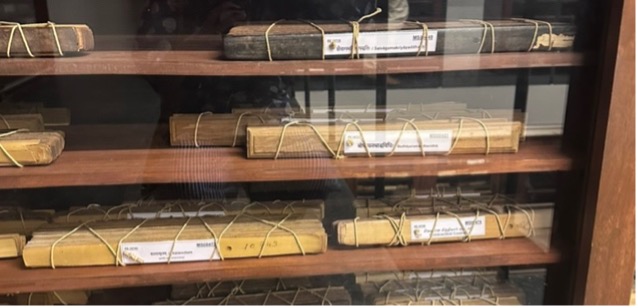


As part of my Grantha reading training, I transliterated some pages of the Bṛhattālavidhi, a liturgical text in Grantha script, into Devanagari. Initially, reading directly from the manuscript was challenging, and my progress was slow as I was going syllable by syllable. However, after a few folios, I found that I could read whole words and even infer parts of familiar words that were sometimes missing due to damage to the palm leaf. I have always found learning how to read a new script an exhilarating process, and this experience was no different. What made it unique was the fact that I was reading directly from a manuscript.
During my first two weeks at the institute, I also attended several sessions where I observed scholars from the IFP and the EFEO (École française d'Extrême-Orient, Centre d'Indologie) critically edit and translate a few manuscripts from their collection. Witnessing these experienced scholars combine their expertise to create critically edited versions of previously unedited texts gave me valuable insight into their entire process.
While my work was primarily with the Indology department, I had the opportunity to connect with several researchers, both from India and abroad, who are working on remarkably varied projects, such as studying the growth rates of forest trees or medieval vernacular mathematical practices. As a first-time visitor, I found the institute's unique intellectual environment highly conducive to learning and research: the interconnectedness of the departments, both physically and through their collaborative projects, fosters an uninhibited flow of ideas and knowledge. I am incredibly grateful to the South Asia Centre and the IFP for organizing this internship program, and I look forward to returning to the institute in the future.
Neha Tiwari
October 23, 2024
